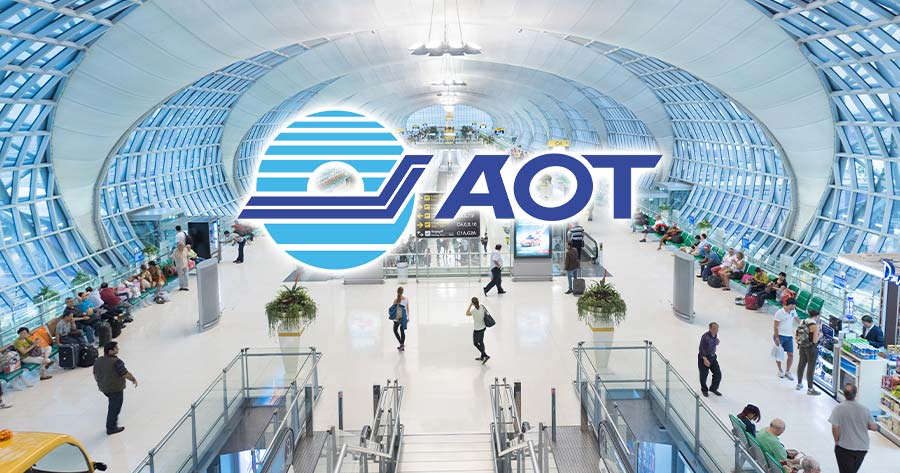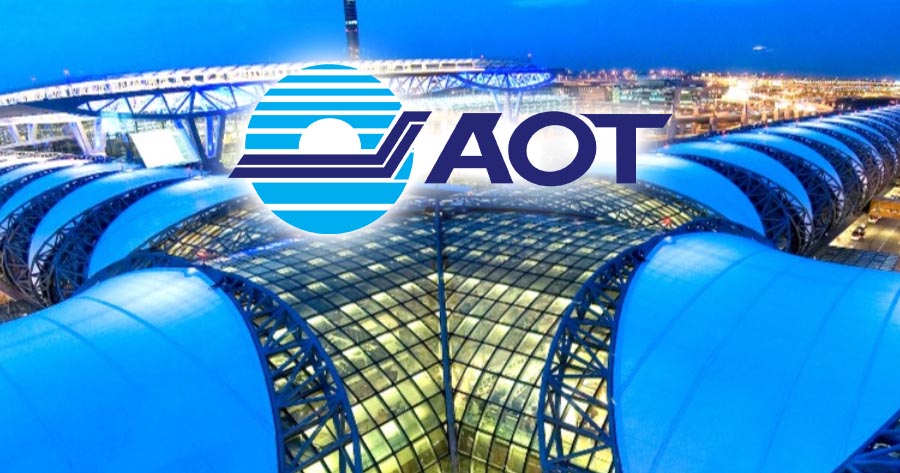Kittipong Kittikachorn, General Manager of Suvarnabhumi Airport, Airports of Thailand Public Company Limited (SET: AOT), revealed air traffic figures for the first 11 months of fiscal year 2025 (Oct 2024 – Aug 2025), stating that there are 126 scheduled airlines operating a total of 340,670 flights, an increase of 7% from the previous year. Passenger numbers reached 58.10 million, up 4.91%, reflecting recovery and growing confidence among airlines and travelers worldwide.
Looking ahead to fiscal year 2026 (Oct 2025 – Sep 2026), Suvarnabhumi Airport is projected to handle around 397,323 flights and 67.70 million passengers. New airlines are set to commence operations, such as United Airlines (Las Vegas – Hong Kong – Bangkok route). Although the allocation of summer flight slots has yet to be finalized, this is a positive sign reflecting Suvarnabhumi’s potential as a regional aviation hub.
Meanwhile, passenger trends from the European Union (EU) continue to expand as Thai Airways International Public Company Limited (SET: THAI) resumes various European routes to enhance connectivity in line with the government’s Aviation Hub policy. Growth from the Indian market also continues, helping reduce the risk of overreliance on the Chinese market alone.
Looking forward, Thailand is expected to launch direct flights to the United States following the US Federal Aviation Administration (FAA) upgrade of Thailand’s aviation safety rating back to Category 1 (CAT1) for the first time in 10 years from Category 2 (CAT2). This opens the door for both Thai and foreign carriers to maximize their long-haul flight potential.
Kittipong further stated that yesterday (28 September 2025), Suvarnabhumi Airport marked its 19th anniversary as Thailand’s main airport and one of Southeast Asia’s key aviation hubs. Since opening on 28 September 2006, it has served a total of over 878.65 million passengers, 5.45 million flights, and handled over 20.62 million tons of cargo.
Suvarnabhumi Airport continues to enhance service quality under the “World Class Hospitality Airport” concept for convenience, safety, and passenger satisfaction, implementing digital systems for services ranging from check-in and security screening to specialized services for the elderly, people with disabilities, and families. The airport also prioritizes environmental considerations through energy-related measures.
In addition, Suvarnabhumi Airport has ongoing plans to improve facilities within the passenger terminal and concourses, such as improving activity areas for departing passengers at Concourses C and F and Satellite Terminal 1 (SAT-1), including Kids Zone, Game Station, rest areas with reclining chairs, Co-Working Space, and Piano Lounge.
At the same time, cargo transport capacity is being continuously enhanced through the development of the Freezone Smart Access system, which manages entry and exit in the bonded area to address congestion from over 8,000 freight trucks daily, reduce cargo pickup and delivery delays, and prevent missed shipments. In the future, the airport emphasizes growth in e-commerce and the global market, with plans to introduce a third cargo operator in 2028 to strengthen its ability to handle increasing cargo volumes.




